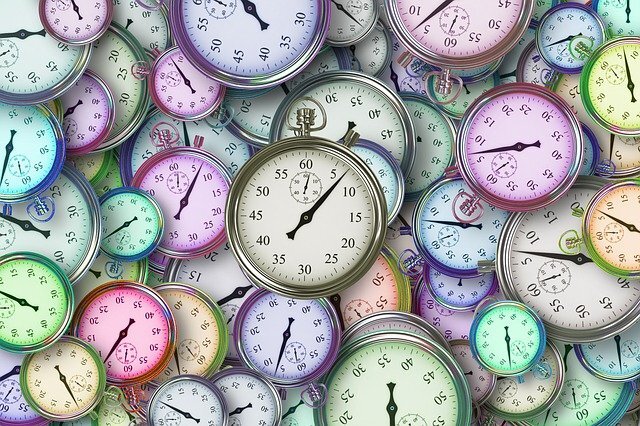Time poor or opportunity rich – which do you feel?
Thoughts such as: ‘I haven’t got time’ or ‘Time is running out’ or ‘Why is there never enough time?’ are known to all of us. But is this really true?
We each have the same amount of time per day: 24 hours. Time is the most democratic thing on earth. And yet, most of us - particularly in the western world - struggle with time on a daily basis. We feel that time is against us, that time is running out and we can’t do anything about it. Why is this?
Often we fall victim to time. We personify time as though it was doing something to us. When that happens we perceive life through the lens of never having enough time. We feel that we don’t have choice about how we spend the 24 hours we have every day. And most crucially: we miss out on opportunities, we can’t see them, because we feel too enslaved by time.
Photo by Ekaterina
This is a perception not reality – fabricated by our mind.
The human mind has long grappled with the elusive nature of time.
Time is a concept to help us structure our life and we have choice as to how we want to spend our 24 hours. The trouble is that most of the time we operate on autopilot and as a result, we miss many choice points in the day and opportunities to live more fully slip by.
What might you choose to do? To spend the next 30 minutes, hour or longer online or do we choose to call a friend, have an important conversation with a staff member or colleague, read a book or article we’ve been wanting to read for a long time, spend time with our children, partner, parents, colleague… or turn wholeheartedly towards a project we’ve longed to begin for a long while? Is it possible to step away from eternal narrative of not having enough time to do anything?
What if we changed our relationship with time and viewed every moment as an opportunity? When we do we can move from feeling time poor to opportunity rich. This also applies to tasks we do need to do but don’t want to do and feel we haven’t got time for it. It fundamentally changes how we live and most importantly how we feel about ourselves, time and life.
Each moment of the day can become a choice point. We can have powerful agency of our time and can feel gratitude for the opportunities life offers us.
Photo by Geralt
Here is a practice to become time conscious and feel opportunity rich:
1. Choose a typical routine week - not when you are on holiday – although many of us feel time poor on holiday too! At the end of the day, write down the main activities you engaged in and roughly how much time you spend on each. This might be quite revealing so it’s important to stay kind and bring a curious, non-judgemental attitude to this exercise.
2. Look at the week and how you have chosen to spend your time and honestly check in with yourself: On a scale of 1-10 (1 = time poor and 10 = opportunity rich) how time poor or opportunity rich do you feel?
3. Depending on the result, look again and reflect on how you want to spend your time, how you want to reframe life’s tasks and demands as opportunities to actively engage in.
I have recently done this exercise and decided not to spend any time anymore on Facebook, Twitter and Instagram. I now only spend some time per week on one channel which is LinkedIn.
Another change I’ve made which has made a big difference and created many opportunities is that I have decided to only watch a film on one or two nights per week rather than on every night when I’m in. Instead I opt to spend the evening speaking or meeting up with a friend or my goddaughter, read or listen to a podcast or go to the cinema... It feels so much more satisfying.
The key is to make a conscious choice about how we spend our time and this will in turn influence our engagement in life. It’s much more in our control than we think!
If you need a little help to make more conscious choices about how you spend your time, do get in touch to book your initial complementary coaching conversation: karen@greenspacecoaching.com


